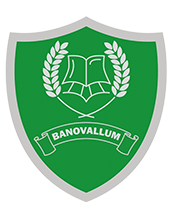Religious Education
Religion and world views make a distinctive contribution to the school curriculum by developing pupils’ knowledge and understanding of humanity. We enable all learners to consider and respond to a range of important questions relating to their own personal development exploring vital themes such as the meaning and purpose of life, and the value of everyone’s opinions and beliefs.
We encourage students to explore shared human experiences to help them affirm their own beliefs and practices, religious or secular. We aim to provide opportunities for cross-curricular activities and to enable students to understand the beliefs and practices of different religions around the world, particularly those represented in Lincolnshire and the UK.
The subject has cross-curricular links with Art through art appreciation and symbolism, Geography and RMT with work on the environment and sustainability, and Science with issues linked to life and death. There are numerous links with PHSE, English and History through subject content but also with student’s personal development in discussion work and interchangeable skills.
Implementation
Through Years 7 and 8, pupils consider three key areas of religion:
- Expressions of faith
- Beliefs and teachings about meaning and purpose
- Ethics and values
These topics are covered in both years to develop skills, revisit beliefs and practices in greater depth, and strengthen understanding. The topics mean we can teach the students about a concept and introduce several religious attitudes rather than teach a religion by itself.
As well as written work, discussions allow students to explore philosophical questions and develop critical awareness of issues. Debates encourage students to understand that they have a right to hold different beliefs, and these add to their identity.
All students follow on in years 9 to 11 to complete a GCSE in Religious Studies where they continue to develop their knowledge and understanding of the world by studying moral issues in a topic format, then completing a course on Christianity and Judaism.
To find out more, please view our assessment objectives and learning content here
 Banovallum School
Banovallum School